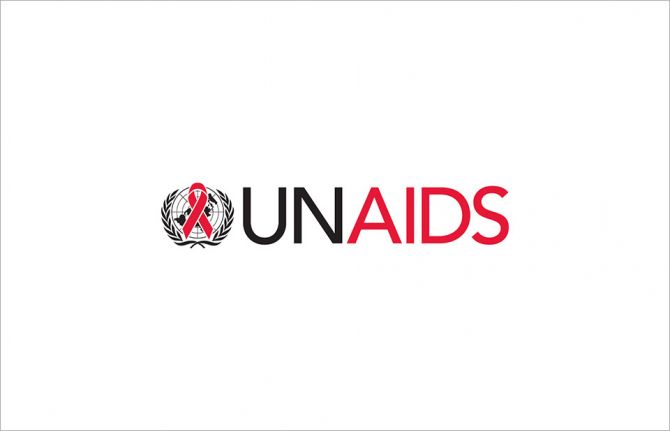

Press Statement
UNAIDS underscores its zero tolerance policy for sexual harassment
10 February 2018 10 February 2018GENEVA, updated 9 February 2018— UNAIDS has a zero tolerance policy for sexual harassment, with clear guidelines and procedures to address allegations and complaints. The organization is committed to having a safe and enabling working environment for its staff.
The Executive Director of UNAIDS has established a special task force entrusted with ensuring an enabling environment for all people to work with dignity and integrity.
It is mandatory for all staff and managers at UNAIDS to undertake a course on preventing and addressing harassment, including sexual harassment. Completing this course is important, as it allows staff and managers to fully understand the meaning of sexual harassment and to identify ways to prevent and address it. Recently, UNAIDS conducted dedicated sessions between managers and staff on this issue.
Formal complaints on sexual harassment are made directly to the Office of Internal Oversight Services (IOS) of the World Health Organization (WHO), which administratively supports UNAIDS. The IOS conducts an independent investigation on behalf of UNAIDS. This independent investigation follows its own procedures in accordance with due process requirements.
The IOS report is then reviewed by the UNAIDS Global Advisory Committee on Harassment, which makes recommendations on the actions to be taken based on the report’s findings. The final decision-maker in such matters is normally the UNAIDS Executive Director. Staff members who are dissatisfied with the decision may avail themselves of the appeals procedures set forth in the WHO’s Staff Regulations and Staff Rules (as adjusted for UNAIDS).
In order to facilitate the reporting of sexual harassment, UNAIDS operates an anonymous and confidential Integrity Hotline, which is open 24 hours a day, every day, providing staff with an alternative way to report complaints. All complaints are examined, and confidential feedback is given.
UNAIDS makes further assistance and support available to staff from the Human Resources Department, the Ethics Office, WHO Staff Health and Wellbeing Services and the WHO Office of the Ombudsman.
UNAIDS has consistently tracked staff perceptions on harassment and well-being since 2011. The Staff Association of UNAIDS routinely conducts anonymous informal staff surveys that include questions on harassment and sexual harassment. The 2017 staff survey indicated that 5.4% (23 people) of the 427 respondents who took the survey said that they had experienced sexual harassment in the workplace.
UNAIDS fully appreciates and understands the harm caused by sexual harassment and remains committed to ensuring that UNAIDS is a workplace that has no tolerance for harassment of any kind.
UPDATE
UNAIDS has recently had one formal complaint concerning sexual harassment and the following steps were taken:
- Upon formal receipt of the complaint in November 2016, the Executive Director of UNAIDS immediately referred the case to the IOS for investigation.
- The IOS began an independent investigation in December 2016. Other than providing requested information to investigators, UNAIDS played no role in the independent investigation.
- During the course of the investigation the IOS interviewed several people, including the UNAIDS Executive Director.
- The UNAIDS Executive Director recused himself from the final decision-making role in the case in order to avoid any perception of a conflict of interest. Instead, the UNAIDS Executive Director delegated authority over the case to the Deputy Executive Director for Management, a.i.
- After completing the investigation, the IOS presented its report to the Deputy Executive Director for Management, a.i.
- The IOS report concluded that the allegations were unsubstantiated, and the IOS recommended that the case be closed.
- Upon receipt of the report, and in accordance with applicable policy, the Deputy Executive Director for Management, a.i., requested the Chair of the standing Global Advisory Committee on Harassment to constitute a panel to review the report and to make recommendations to him.
- Following its examination of the independent IOS report and its recommendations, the panel of the Global Advisory Committee on Harassment fully concurred with the findings and recommendations of the independent investigation and recommended to the Deputy Executive Director for Management, a.i., that he close the case.
- The Deputy Executive Director for Management, a.i., reviewed the report and the panel’s findings and agreed with the recommendations of the IOS and of the Global Advisory Committee on Harassment to close the case. He subsequently communicated the decision to both parties.
- The UNAIDS Executive Director had no role in the issuance of the independent IOS report or in the decision-making process of this case.
- The decision of the Deputy Executive Director for Management, a.i., to close the case may be appealed to the Administrative Tribunal of the International Labour Organization.
UNAIDS
The Joint United Nations Programme on HIV/AIDS (UNAIDS) leads and inspires the world to achieve its shared vision of zero new HIV infections, zero discrimination and zero AIDS-related deaths. UNAIDS unites the efforts of 11 UN organizations—UNHCR, UNICEF, WFP, UNDP, UNFPA, UNODC, UN Women, ILO, UNESCO, WHO and the World Bank—and works closely with global and national partners towards ending the AIDS epidemic by 2030 as part of the Sustainable Development Goals. Learn more at unaids.org and connect with us on Facebook, Twitter, Instagram and YouTube.
Press centre
Download the printable version (PDF)
